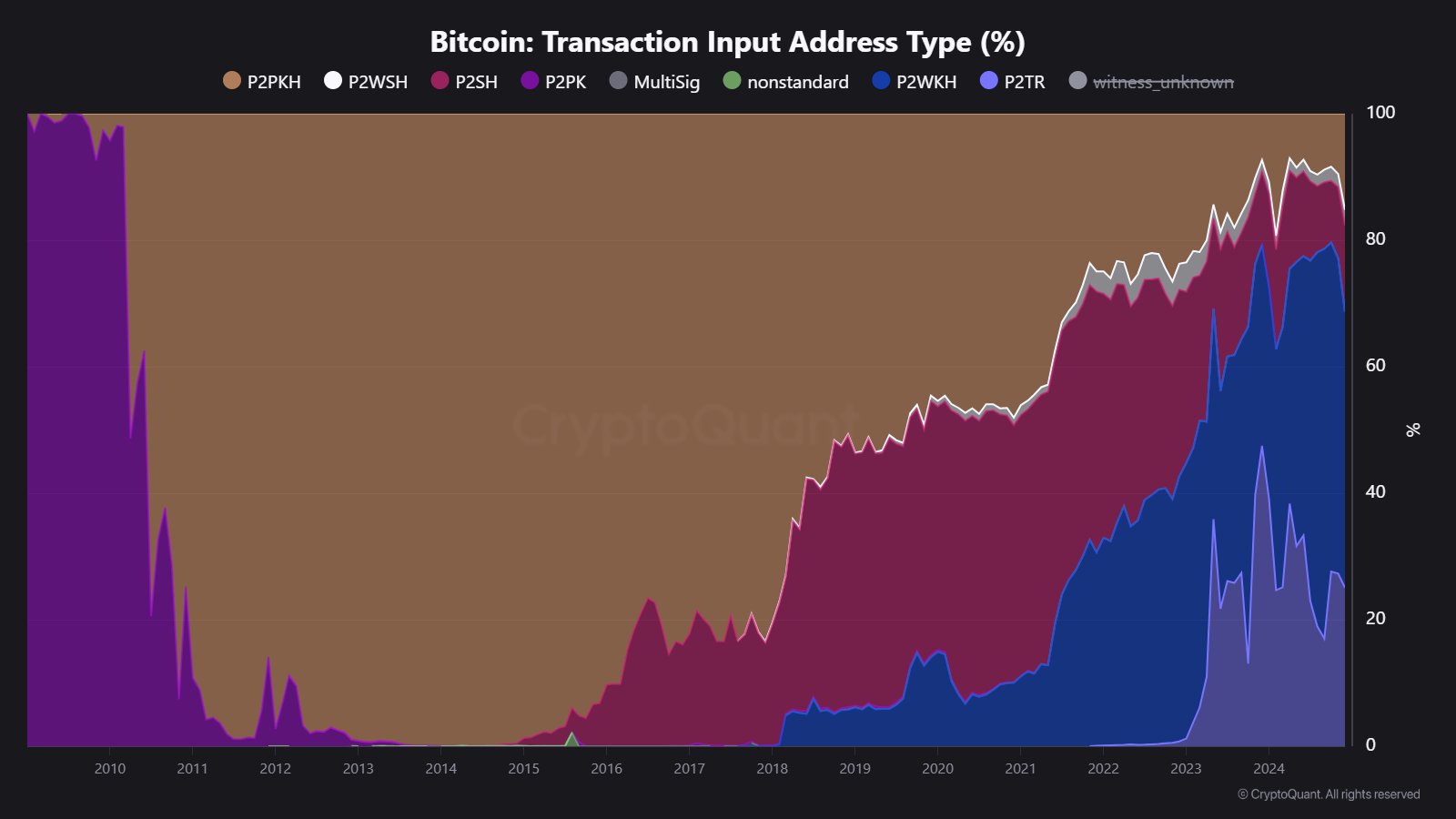The rapid advances in quantum computing that sparked growing concerns within the cryptocurrency sector late last year, particularly regarding Bitcoin’s long-term resilience, appear to have resurfaced once again.
CryptoQuant, an on-chain data analytics platform, recently highlighted these risks in a series of publications in X titled “Quantum computing is a growing risk for Bitcoin.”
The discussion focused on two critical aspects: the security of Bitcoin mining and private key vulnerabilities, both of which could face significant challenges as quantum technologies advance.
Quantum threats to Bitcoin mining and network security
Bitcoin’s proof-of-work (PoW) system relies on computing power to validate transactions and secure the network. The SHA-256 hash function, integral to Bitcoin mining, currently ensures strong security by preventing malicious actors from tampering with the blockchain.
However, CryptoQuant warns that quantum algorithms, specifically leveraging advanced algorithms like Grover’s, could “substantially speed up hash resolution processes.”
If quantum computers are able to outperform classical mining hardware, it could tip the balance of power in mining, allowing miners equipped with quantum technology to dominate block validation. This dominance would not only disrupt the network consensus, but would also potentially compromise Bitcoin’s decentralized structure.
CryptoQuant emphasizes the importance of keeping a significant portion of non-quantum computing hash power on the network. A healthy and diverse mining ecosystem would mitigate the risks posed by any entity gaining disproportionate control through quantum technology.
While quantum supremacy in mining remains speculative at this stage, ongoing advances in the field warrant close monitoring by stakeholders, including miners and developers.
Private Key Security: Vulnerabilities and Adaptations
Beyond mining, quantum computing also poses risks to the security of the BTC private key. The Bitcoin network uses cryptographic systems to secure wallets and transactions, with public and private keys forming the basis of ownership.
According to CryptoQuant, Shor’s algorithm could, in theory, allow quantum computers to deduce private keys from public keys, thus compromising wallet security.
Particularly vulnerable are pay-to-public-key (P2PK) addresses, where the public key directly serves as the wallet address. In contrast, Pay-to-Public-Key-Hash (P2PKH) addresses provide an additional layer of security by hashing public keys.
Private key security and quantum risks
Another major concern is Shor’s algorithm, which could theoretically allow quantum computers to find private keys from public keys. ‘Payment to public key’ (P2PK) addresses are more vulnerable to quantum attacks, as the public key directly serves… pic.twitter.com/q2NBvbwGLe
– CryptoQuant.com (@cryptoquant_com) January 7, 2025
However, when BTC is transferred from these addresses, the public key is exposed, increasing susceptibility to quantum attacks. CryptoQuant also saw a notable increase in the use of P2PKH addresses, increasing by 14% in recent months.

While the exact cause of this change is still unclear, it suggests increased awareness and caution among Bitcoin holders regarding quantum vulnerabilities.
Featured image created with DALL-E, TradingView chart



